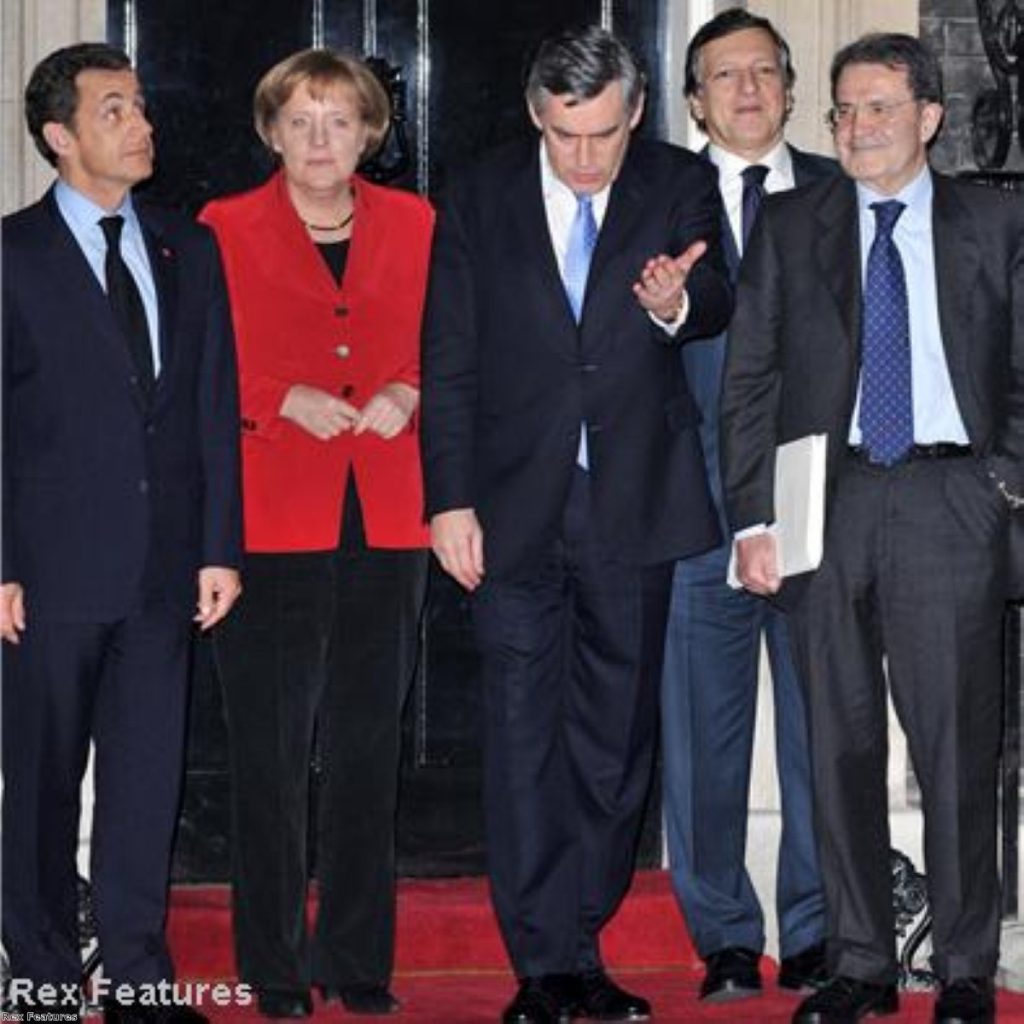Euro leaders unveil global economy blueprint
European leaders have gathered in London to discuss how best to combat the global credit crunch.
Prime minister Gordon Brown hosted French president Nicolas Sarkozy, German chancellor Angela Merkel, Italian prime minister Romano Prodi and EU Commission president Jose Manuel Barroso for talks at Downing Street.
The leaders of the four biggest economies in the EU signed a communiqué setting out three guiding principles for addressing “turbulence” in financial markets.
It states primary responsibility “must remain” with financial institutions and investors; calls for the reinforcement of regulatory and supervisory frameworks; and states the case for authorities in different counties to improve their cooperation.


The joint agreement also seeks more frequent reports from the International Monetary Fund (IMF) and Financial Stability Forum on threats to global economy and, in a bid to “improve transparency of markets”, calls on the IMF to “strengthen and clarify” its responsibility towards the overseeing of macro financial stability.
Ahead of the talks, poor performance in the US economy had sparked fears of a wider slowdown in the global economy. Restricted interbank lending, slips on the FTSE 100 index and the near-collapse of Northern Rock are among the domestic impacts of the crisis.
Mr Brown was expected to discuss cross border cooperation, transparency of banks’ balance sheets and the role of ratings agencies.
He used last week’s World Economic Forum in Davos, Switzerland, to call for wider reforms of global financial institutions.
Mr Brown also called for a repricing of risk, greater action from governments’ fiscal policy and a renewed commitment against protectionist measures.
“This latest test of world financial systems presents a window in which to address fundamental issues that, if tackled properly, will improve economic management, regulation and the fight against inflation, and help us prevent similar crises in the future,” he said.
His chancellor, Alistair Darling, told this morning’s Today programme that regulation could only go so far to protect the financial sector, however.
“What the events of last autumn have shown and what the beginning of this year have shown is that governments do need to take the appropriate action to support the economy – whether it is the world economy or their own economy,” he said.
“Because we have got very low debt levels and because we have historically low interest rates we can then support the general economic policy and take the right action.”
G7 finance ministers are due to meet in Tokyo on February 9th.












